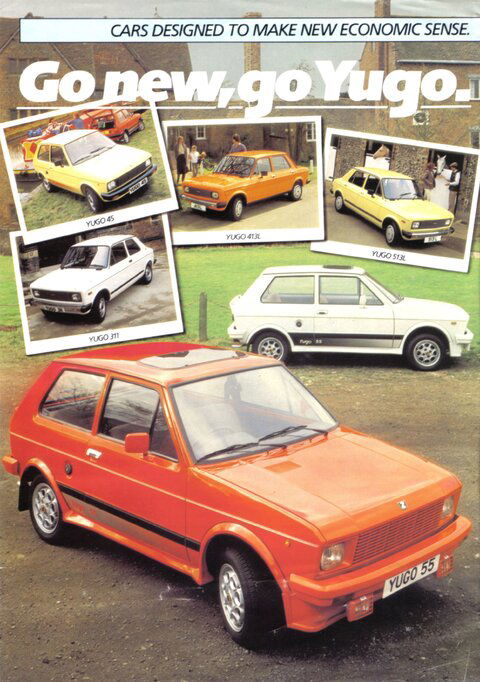Isn't it likely they were the norm because their automakers weren't pushing outsized tanks that gulped gas as if it were water?
How are the unions responsible for the U.S. automakers' ignoring the unmistakable message of the 1970s oil embargo: that the world was inevitably changing?
I believe there are several factors to consider.
Americans want large cars. After WWII, we became a very mobile society; traveling long distances to see more of the country. Route 66 and the creation of the interstate system aided our travels. Putting your family of 4 in a small car wasn't ideal so you bought a station wagon. Gas was cheap so you could buy a huge car with lots of power. It's what the consumer wanted. US automakers would create small cars as the times warranted but, given the choice (and when gas is cheap) Americans buy bigger cars. Not because they're forced to do so, but because it's what they want. History bears that out.
A major factor is that smaller cars are less profitable. Compared to larger vehicles, you have to sell a lot more small cars to make a profit. Profit on a small car can be several hundred dollars compared to several thousand for a big vehicle. Sales of small cars like the Toyota Yaris and Honda Fit are increasing but those models are manufactured overseas and imported to the US because their volumes are simply too small to make a profit if made in the US.
Part of profitability are exchange rates. A weak dollar means that a subcompact from Europe could cost as much as a mid-size vehicle. That's one reason why we don't see the subcompacts from Mercedes and Audi here in the US. A company isn't going to push sales of a vehicle when they lose money on each one.
I don't have a full explanation of why Europeans and Asians enjoy small cars. I'm sure the current reason is extremely high fuel prices, but the factors that prompted Americans to like bigger vehicles were not mimicked overseas.
Regarding unions, my opinion was that unions bear the brunt of responsibility of the condition of US automakers in general and GM in particular. In 2005, GM spent over $5 BILLION in health care benefits. I'm using data from several years ago, but at a time when the average family was paying roughly 20% of their overall health care costs, UAW members were paying nothing. Not even a co-pay. In 2007, health care costs per vehicle at Toyota were $300. At GM, that figure was $1600.
Just prior to the recent bankruptcy announcement, GM had 513,000 employees but was paying benefits to almost 1.1 MILLION former and current employees. That's not counting dependents; in 2006 at GM, there were almost 4 retirees and dependents for every active worker.
My assertion is that a company simply can't maintain that high level of fixed cost attributed to non-productive people for very long.


